The alias of Greek-Australian artist Natasha Newling isn’t just empowering (a reference to the courageous Biblical figure Rahab)—it’s a vessel to mix her many creative talents. As RAYHAB, Newling fuses songwriting, music, producing, and dance. After many years, she’s revealed her long-awaited and labored-over debut EP, RESIDUE: a collection of five lustrous alt-pop songs detailing everything from searching for meaning to bouncing between homes. The music is a delicate product of Newling’s life.
Following RESIDUE’s release, I got a chance to speak with Newling about the EP, how her experience with dance and acting complements her musicianship, and the deeper sense of hope she aspires to convey with her reflective songs.
How long did it take for the EP to come together? Did you have an EP in mind from the start?
Natasha Newling: I think the body of work itself took a number of years, just because I was in a phase of having this vision, but then being so stubborn that I wanted to do it all myself that I was constantly upskilling the entire time. I wrote a lot of songs a few years ago when I was living in Melbourne, and then went on this whole engineering producer journey, which took me from Melbourne to Sydney in multiple different studios, learning from some of the top engineers, producers, and mix engineers in the country.
I was constantly like, “Oh, I’ve done this with my tracks, but like, it could be better now because I’m upskilled as well.” I think you can always fall into that trap. So it had to get to a point where I was like, “No, I’m signing off.” I’m always forever going to be learning and improving. So, let’s have this body of work as a reflection of a period of time, and then let’s move on to the next one.
How did you deal with moving between Sydney and Melbourne? I know you’re from Sydney, but how did you navigate writing the songs between those two places?
NN: RESIDUE came about from the remnants of experience. For me, I’ve always felt in a place of in-between growing up in Sydney in a really, for lack of a better word, white community and my mum is a Greek who immigrated from Greece. At that period of time, it was like I didn’t quite fit into either culture. I felt like that throughout my trajectory. So I guess the work unconsciously reflects that. In terms of me in Melbourne, I wrote the majority of [RESIDUE] through the years that I lived there, and Melbourne still feels like home. I grew up in Melbourne as a person, and then I came back to Sydney where I was really able to hone into the producer engineering side of things, whereas the artistry, I think a lot of it took place within Melbourne.
You wear so many hats being a producer and an artist. Having so much autonomy though, do you find yourself overthinking everything?
NN: Yeah, I definitely fell into that trap many times. I think I’ve had to split it into two worlds for myself—that’s why my project is RAYHAB and with my engineering and producer side of things I use my name, Natasha Newling. It can be hard to separate and take the work and look at it objectively, because you look at things differently as the artist. You’re like, “This is the vision I have, how do I get here?” It’s a bit more whimsical in a way. Whereas with my producer brain, I’m like, “Okay, what do we want to do to enhance the message that’s being conveyed through this song?”
Honestly, I think that’s why this first body of work took such a long time to make. There wasn’t only upskilling, but I was in the process of learning to let the work sit, then come back and look at it objectively and be like, “Oh, actually, is this good? Is what I intended to put out?” I definitely think you can get caught up in a mix so, so much, but often, the revisions you make aren’t always going to be a good thing.
What about your involvement with dance and acting in production? Does that work hand-in-hand with what you do as RAYHAB? I’ve seen the music videos for the EP and it looks like that comes through. What dimension does that artistry add to this body of work?
NN: That’s a good question. I guess, particularly in my late teens, I was a professional dancer and that’s the trajectory I thought my life was headed on. But because of injury, I had to sort of re-evaluate. I went through this process of thinking, “What am I going to do?” You know, the realistic side of you is kind of like, “You should do a job where you can earn money.” And then the creative side is like, “I can’t live like that.” *laughs* So it took me on this wild journey, and that’s why I ended up in Melbourne for so many years as well. I was exploring different facets of my creativity, acting, music, and production.
And because I guess I was always really good at choreography as a dancer, and having that control and that byproduct ended up being the same thing for producing and engineering, I wanted to create the whole thing. I definitely have been trying to find a way where I can allow my dance background to come into my music and where that sits. That’s where I’ve landed with my live performances—they’re really contemporary dance-based, it’s not like a commercial dance. I think that’s where it’s a little bit different.
I’m using this hardware called AirSticks. They were developed in Melbourne by my friend Alon [Ilsar] and they essentially enable your body to become an instrument, so they make sound when you move. I’ve incorporated that into my live set. It just adds this extra element, which… I don’t know, maybe because I’ve been dancing for such a long time, but it just allows me to be in my body so much more comfortably in front of people too. It just feels like a natural progression for me.
That’s awesome. I’m sure that multifacetedness can get the creative juices going.
NN: I think so, but then it does make it hard to pigeonhole something. I think, even when I’m creating music, it sort of sits on the outskirts of being mainstream pop, or indie pop, or kind of left-of-center alternative.
I was about to ask that, too—you describe your music as sitting “between polished pop and not.” Do you think it’s all of your endeavors or your approach to the music itself fueling that?
NN: I think so. I definitely think so. It’s my creative brain just, like, pinging all the time, as well as that reflection of my entire person growing up—not feeling exactly like I fit into a specific community, per se.
The themes of the songs broadly explore reconciling with the past, searching for deeper meaning, and the complexities of relationships. Can you explain what the body of work is supposed to convey as a whole?
NN: While I was writing these songs, I was actually really, really deep in the church. I’m not so much anymore, but I still have a spirituality. So I was exploring this whole other side of things and searching for meaning, I guess. Really, the relationships, a lot of the ones I’m talking about [on RESIDUE], are directly reflecting my relationship with the church. For instance, on “Violet,” laying in a bed of violets is kind of this old mystic term for holding on to hope and keeping faith. So yeah, there were all these interesting layered meanings. It kind of was like an onion for me in the exploration of life. And these songs do that.
When collecting the songs into an EP, when did it start to feel like, “Okay, this is a statement I can put out to the world for people to take in?” Listening to the words made your EP stick out to me personally.
NN: I hope that people can get a sense of hope from it, because I think the lyrics do depict struggle. It’s not rainbows and butterflies, but I think there’s just an underlying tone of hope and silver lining throughout the entire body of work. I just hope that people can hold on to that when they’re listening.
Also, regarding your artist name, RAYHAB, I have a loose understanding of the story behind it, but why choose that name for this project?
NN: As I said at the time, I was pretty deep in the church life, and still there was that side of me that saw so much imperfection in everything. Like, I mean, that’s life, you know. But particularly in a church environment, too. And when I read about this character, Rahab, who was a sex worker in the Bible, yet, you know, a woman and a sex worker, but still was so valid and mentioned in the Bible, because you don’t often hear of that story. I thought that was a really cool story.
And being a woman in audio engineering, in a really male-dominated space, it just felt really fitting for me. It’s kind of, like, the world saw her as very little, but she’s so much more than that. I think at the time it held a lot of meaning for me, but it was also a way I could separate the artist side of myself from the producer and engineer. So I could try on this side of myself that I don’t show within the studio everyday life, you know what I mean? And it’s okay to explore that.
RESIDUE is out now on all major music platforms. You can follow RAYHAB for updates over on Instagram! Cover photo by Chloe Hall.


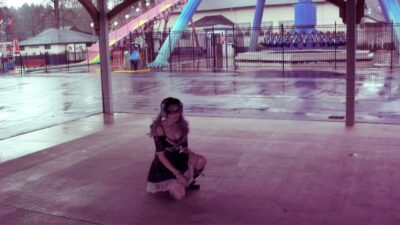
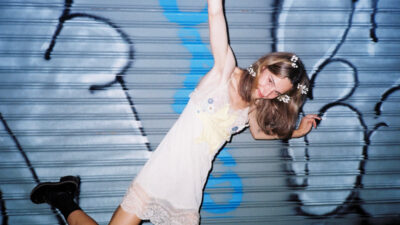
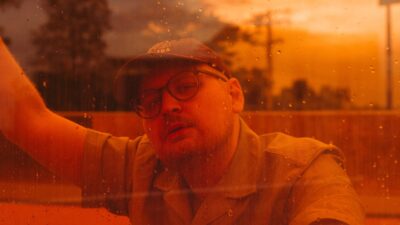
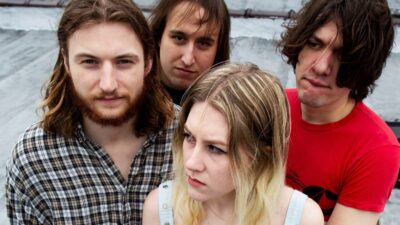
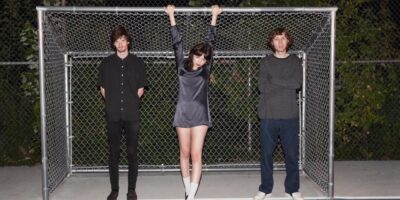
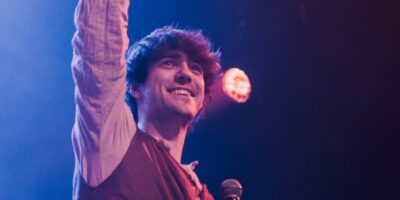
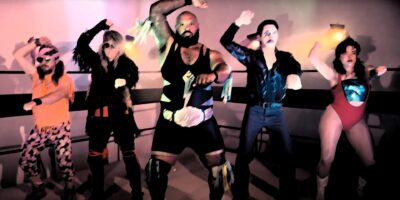
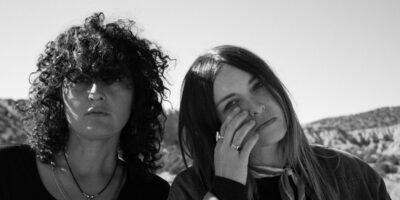
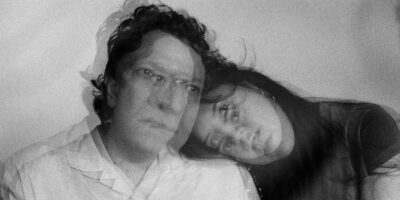
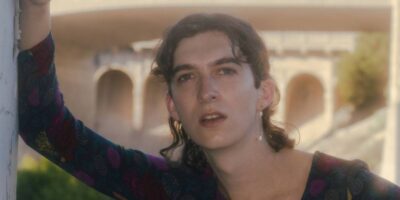




Comments